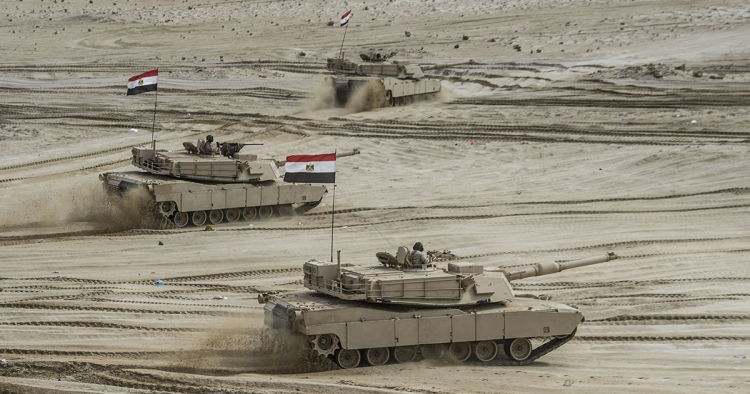In 2022, the United States and Egypt marked the centennial of their diplomatic relations. As Secretary of State Antony Blinken wrapped up his fourth visit to the Middle East in late January 2023, with stops in Egypt, Israel, and the West Bank, he acknowledged the strong U.S.-Egypt strategic partnership and Egypt’s contributions to regional stability and international security. He also emphasized ongoing bilateral cooperation and defense ties. President Joe Biden had previously highlighted Egypt as a key partner in the U.S.-led global climate agenda during his visit to Sharm El-Sheikh for COP27 last November.
Given Egypt’s significance, it is important that the U.S. Government align with its National Security Strategy, which places priority on “making sure [U.S. partners] can defend themselves against foreign threats,” all while fostering human rights and human security. This includes supporting Egypt with U.S. military aid for defense security, as well as economic aid directed to human security, through both government-to-government partnerships and people-to-people ties.
Egypt a key pillar in U.S. regional security architecture
Egypt has been an integral part of the United States’ Middle East security policy since Cairo signed a peace treaty with Israel in 1979. The inclusion of Israel and Egypt, a former Soviet ally, in the U.S. camp required both countries to feel militarily secure in relation to one other and against new emerging threats. This resulted in the provision of U.S. military aid to both countries. It is important for the U.S. Congress to consider the long-standing U.S.-Israeli-Egyptian trilateral relationship before making future decisions to halt U.S. military aid to Egypt.
The Congress should also recognize that U.S. military aid enables Egypt to receive U.S.-made arms through what is essentially store credit, making it more of a subsidy to the domestic U.S. defense industry than a gratuity to Egypt. Every year, Congress allocates $1.3 billion in military assistance to Egypt. However, the funds never reach Egypt directly. Instead, they are transferred to the Federal Reserve Bank of New York and then to a trust fund at the Treasury, finally being distributed to U.S. military contractors who manufacture the tanks and fighter jets that are ultimately delivered to Egypt. This gives the United States oversight over the way funds are dispersed. Thus, it is important for Congress to consider U.S. military aid as a means of maintaining regional peace and security, as well as an economic driver for the domestic U.S. defense industry, rather than a significant financial burden on the U.S. budget.
Continue reading on The National Interest
Photo by KHALED DESOUKI/AFP via Getty Images
The Middle East Institute (MEI) is an independent, non-partisan, non-for-profit, educational organization. It does not engage in advocacy and its scholars’ opinions are their own. MEI welcomes financial donations, but retains sole editorial control over its work and its publications reflect only the authors’ views. For a listing of MEI donors, please click here.













